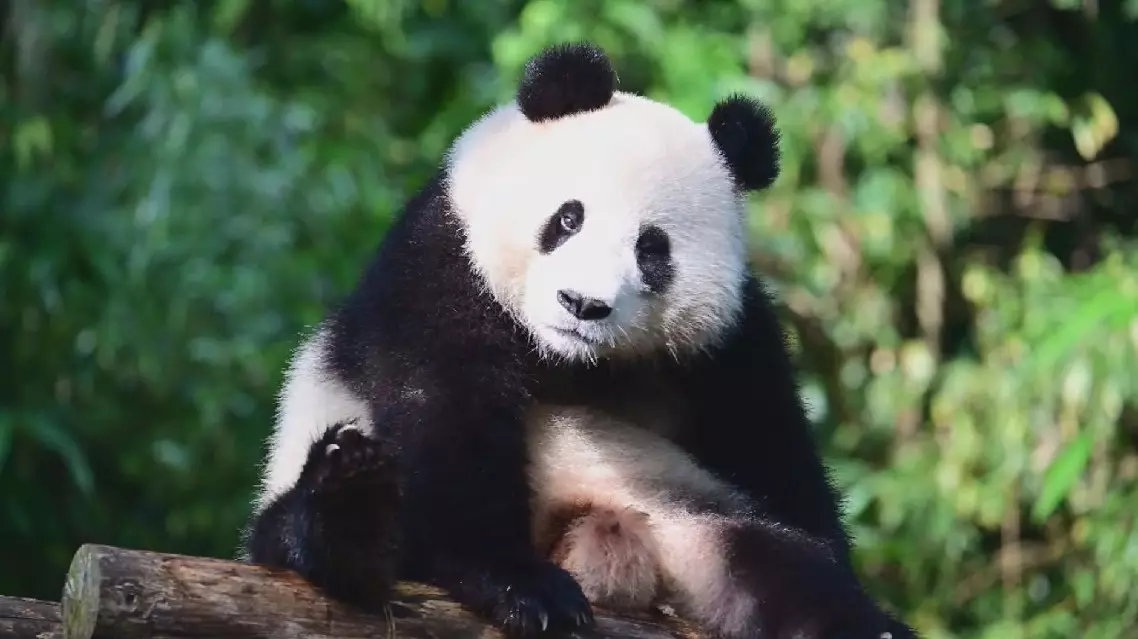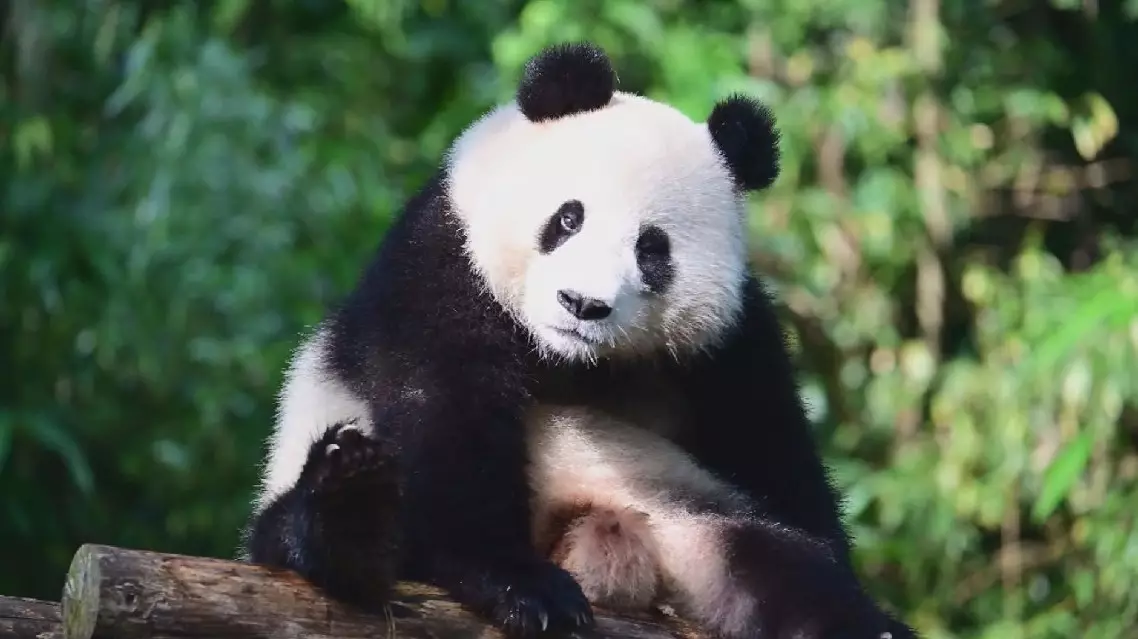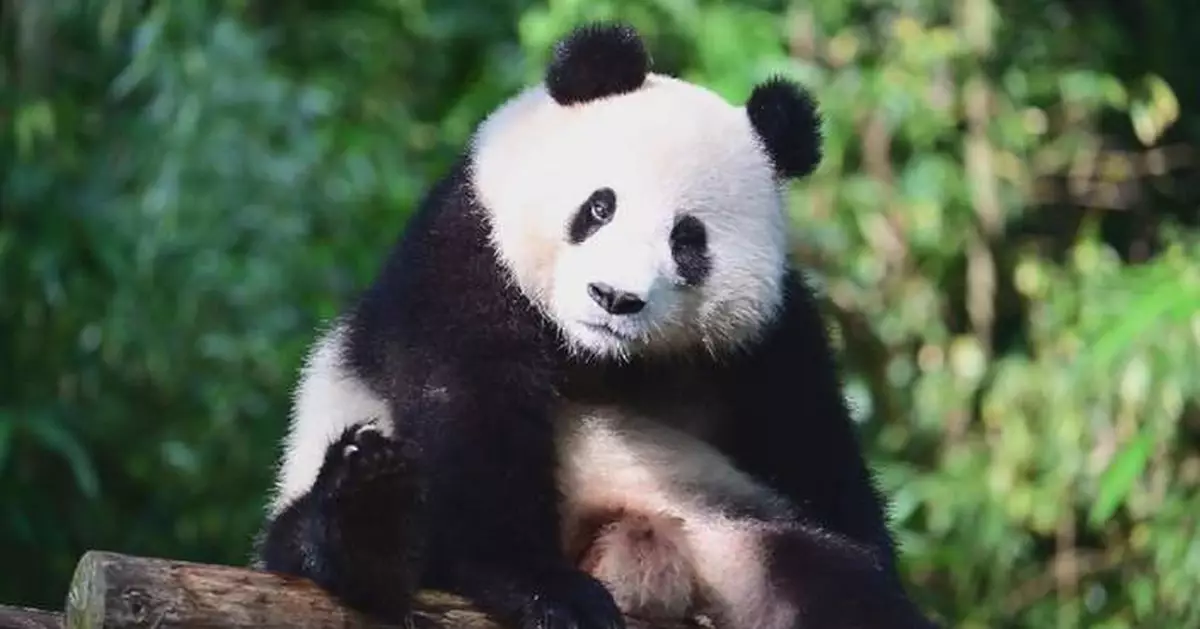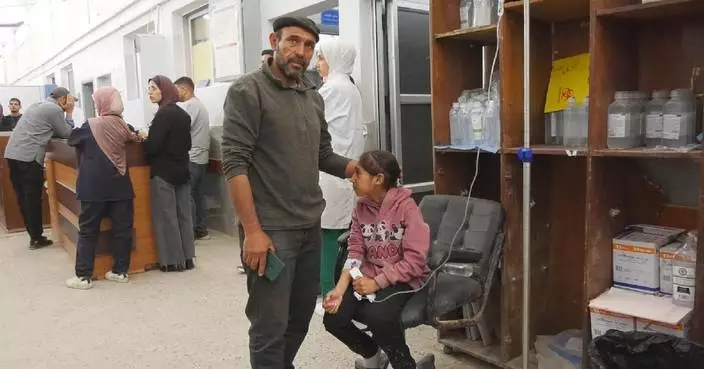Two Chinese giant pandas Bao Li and Qing Bao embarked on their journey to the United States early on Tuesday morning from a breeding base in southwest China's Sichuan Province, starting their 10-year residency at the National Zoo in Washington, D.C..
Chinese and American experts will cooperate and join hands to ensure the well-being of the two giant pandas at the National Zoo.
Bao Li and Qing Bao departed from the Dujiangyan base of the China Conservation and Research Center for Giant Pandas (CCRCGP) and reached Chengdu Shuangliu International Airport on Monday evening. They then boarded a special plane headed for the National Zoo in Washington, D.C. early on Tuesday morning.
The China Wildlife Conservation Association and CCRCGP held a farewell ceremony for the two giant pandas on Monday afternoon.
Bao Li, a male panda whose name translates into English as "treasure" and "energetic," was born in August 2021. Qing Bao, a female panda whose name means "green" and "treasure" in Chinese, was born a month later than Bao Li. The two giant pandas have lively personalities and enjoy climbing.
The CCRCGP has dispatched two keepers and a veterinarian to the National Zoo to assist the pandas in swiftly adapting to their new environment in the United States.
Furthermore, experts from both China and the United States have conducted various tasks to ensure a healthy life for Bao Li and Qing Bao at the National Zoo.
The Chinese experts have conducted multiple assessments in the United States regarding the living environment, breeding management, food security, and health care for the giant pandas.
Based on the suggestions of the Chinese experts, the National Zoo has upgraded the enclosure for the giant pandas, ensured a stable food supply of bamboo and bamboo shoots, established a professional breeding management team, formulated comprehensive breeding management systems and technical standards, reinforced regular health monitoring reports and on-site inspections, and enhanced the zoo by renovating facilities such as lawns and pools while adding additional climbing structures.
In early October, the National Zoo dispatched four keepers and veterinarians to China to take part in breeding management and disease prevention efforts for the two giant pandas.
Over the past 24 years of cooperation between China and the United States in giant panda conservation, both countries have achieved positive results in various fields concerning giant panda conservation, including breeding, disease treatment, technical exchanges, personnel training, and public awareness of wildlife protection. They have successfully bred and raised giant pandas Tai Shan, Bao Bao, Bei Bei, and Xiao Qi Ji.
The cooperation has played a positive role in enhancing the conservation capabilities of wild giant panda populations and has substantially promoted cultural exchanges between the people of the two countries.

China's panda pair hits road to US

China's panda pair hits road to US
International buyers have been heading straight from exhibition halls to Chinese production lines during the ongoing 137th China Import and Export Fair, popularly known as the Canton Fair, held in Guangzhou, south China's Guangdong Province.
Taking place from April 15 to May 5, this edition of the fair is divided into three themed phases -- "Advanced Manufacturing," "Quality Home Living," and the current phase, "Better Life," which opened on Thursday, focusing on products closely tied to everyday needs.
This year's fair has set a new benchmark with a record-high 224,372 overseas buyers from 219 countries and regions, marking a pivotal moment in global trade.
During the ongoing fair, many overseas buyers are not stopping at handshake agreements but taking the next step by visiting Chinese factories directly. After sealing deals at the fair, manufacturers across the country are already ramping up production to ensure timely delivery.
One precision manufacturing company specializing in optoelectronic products made waves at the fair's dedicated Service Robots Zone. Their newly developed service robot drew significant attention from global buyers. Now, at its automated production facility in Zhongshan, Guangdong, machines are running around the clock.
"We've connected with more than 200 interested customers through participating in the fair. Five groups of international buyers have already visited our factory. Buyers from four different countries have shown clear intent to purchase our prototype models," said Gu Shangqi, head of the unmanned systems department at Union Optech (Zhongshan) Technology.
Meanwhile, Greek buyer Carl Pas was captivated by a diamond painting manufacturer at the fair and soon traveled to Yiwu in east China's Zhejiang Province for a closer look. Accompanied by the company's foreign trade manager, Lei Dan, Pas toured the recently installed digital production equipment and assessed the product's European market prospects.
"I think they (the products here) are carefully designed and well thought out for the end consumer to make this craft a very enjoyable craft and keeping in mind quality and safety. It's a good time to sit with our partners and gives us an opportunity to do more than just buying a product from the Canton Fair. We come here and we partner to develop the future together with the company," said Pas.
For Lei, the trade manager, this kind of in-depth engagement is exactly what the company hoped to achieve.
"Our focus this year is to develop clients from the Canton Fair, especially from Europe, Southeast Asia, and the Middle East. We had a nine-square-meter booth at the fair that drew a lot of foreign buyers. After the exhibition, many came to Yiwu to see our factory's production and design capabilities. Some are already in the process of negotiating orders," she said.
According to Yiwu China Commodities City Group, more than 10,000 overseas buyers are expected to visit Yiwu during the fair season to explore new products, place orders, and build partnerships.

Canton Fair helps Chinese factories to connect with global buyers





















































